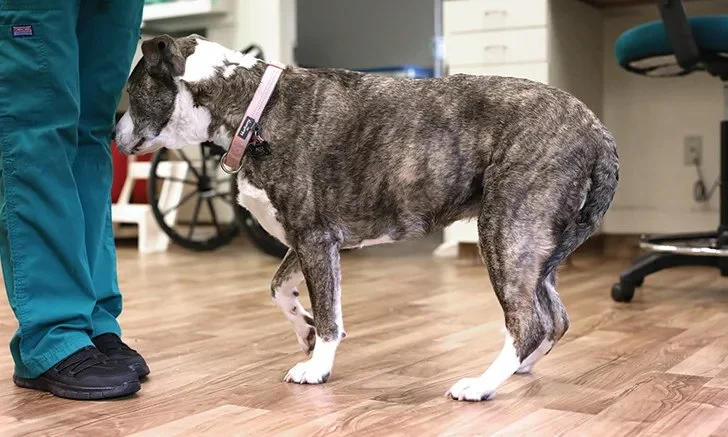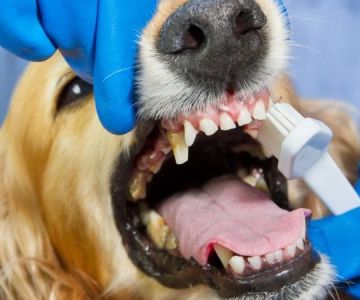
- -Recognizing Signs That Indicate Your Pet Needs a Vet Visit
- -Common Behavioral Changes in Dogs That Suggest a Vet Visit
- -How to Spot Health Issues in Cats Based on Their Behavior
- -Behavioral Red Flags for Pets: When to Seek Professional Help
- -How Monitoring Your Pet’s Behavior Can Prevent Serious Health Issues
1. Recognizing Signs That Indicate Your Pet Needs a Vet Visit
As a pet owner, it's essential to stay alert to changes in your pet's behavior. While some fluctuations in activity levels are normal, others can indicate an underlying health issue. Many pets can’t verbally communicate when something is wrong, so they rely on behavioral cues to express discomfort, pain, or distress. Recognizing these cues early can help prevent more severe health problems down the line.
In this article, we’ll explore some of the most common signs and behavioral changes in pets that suggest it's time for a vet visit. Whether you're dealing with a dog or a cat, understanding these behavioral red flags can help ensure that your furry friend gets the proper care they need at the right time.

UrgentVet
Cave CreekMaricopa CountyArizona
5355 E Carefree Hwy Suite #A-101, Cave Creek, AZ 85331, USA
2. Common Behavioral Changes in Dogs That Suggest a Vet Visit
Dogs are known for their loyalty and liveliness, but when they suddenly start acting differently, it could indicate that something is wrong. Here are some behavioral changes in dogs that suggest it’s time to consult with a vet:

Arizona Exotic Animal Hospital (Phoenix)
2340 E Beardsley Rd # 100, Phoenix, AZ 85024, USA
1. Loss of Appetite
If your dog is no longer interested in food, it could be a sign of illness. Dogs are generally eager to eat, and a sudden loss of appetite can point to a variety of health concerns, including digestive issues, dental problems, or more serious conditions like infections or cancer.
2. Excessive Lethargy
Dogs that are usually active and playful but suddenly seem lethargic may be experiencing pain, fatigue, or underlying health issues. If your dog is unusually tired or reluctant to engage in their usual activities, it's a good idea to have them examined by a vet.
3. Excessive Barking or Whining
While barking is a normal behavior, if your dog starts barking excessively or whining for no apparent reason, it could indicate anxiety, pain, or distress. It's essential to identify whether there are any physical or emotional triggers behind these vocalizations.
3. How to Spot Health Issues in Cats Based on Their Behavior
Unlike dogs, cats are more independent and may not exhibit outward signs of distress. However, there are still key behavioral changes to watch for in cats that suggest a potential health issue:
1. Changes in Litter Box Habits
One of the most significant indicators of a health issue in cats is a change in litter box habits. If your cat suddenly stops using the litter box or starts urinating outside of it, they may be experiencing a urinary tract infection (UTI), kidney disease, or other health concerns. Similarly, a cat that starts to strain or show discomfort while urinating should be examined by a vet immediately.
2. Sudden Weight Loss or Gain
Unexplained weight loss or gain in cats is often a sign of a health problem. Sudden weight loss could point to thyroid problems, diabetes, or gastrointestinal issues, while rapid weight gain may indicate heart disease, kidney problems, or hormonal imbalances. Regular weight checks can help you catch these changes early.
3. Excessive Grooming or Hair Loss
Cats are meticulous groomers, but if you notice them excessively licking or chewing at their fur, it could be a sign of stress, allergies, or skin infections. Hair loss in patches can also point to parasites like fleas or conditions like feline hyperthyroidism. If grooming behaviors suddenly change, it’s time for a vet checkup.
4. Behavioral Red Flags for Pets: When to Seek Professional Help
Sometimes pets show clear signs that something is wrong, and it's crucial to know when to seek professional help. Here are some behavioral red flags that should never be ignored:
1. Difficulty Breathing
If your pet is struggling to breathe or seems to be gasping for air, it’s a medical emergency. Difficulty breathing can be caused by many conditions, including heart problems, respiratory infections, or even blockages in the airway. Seek veterinary help immediately if you notice any signs of labored breathing or coughing.
2. Uncontrollable Vomiting or Diarrhea
Frequent vomiting or diarrhea that lasts for more than 24 hours can be a sign of infections, toxins, or digestive disorders. If your pet seems lethargic, refuses to drink water, or shows signs of dehydration, it’s important to seek veterinary care to prevent more severe health complications.
3. Sudden Aggression or Unusual Behavior
If your pet, whether dog or cat, suddenly becomes aggressive or starts acting out of character, it could be due to pain, fear, or illness. Behavioral changes like biting, scratching, or growling can signal discomfort, neurological issues, or even hormonal imbalances. A professional evaluation is essential to understand what’s going on.
5. How Monitoring Your Pet’s Behavior Can Prevent Serious Health Issues
Consistently monitoring your pet’s behavior is one of the most effective ways to detect early signs of health issues. By paying close attention to changes in their eating, drinking, grooming, and activity levels, you can catch potential health problems before they become severe. Keeping track of these changes and discussing them with your vet during regular checkups will help ensure that your pet remains healthy and happy for years to come.
If you’re ever unsure about your pet’s behavior or health, don't hesitate to reach out to a trusted veterinarian. For those looking for pet health products and services, visit Pet & Puppy for the best recommendations and advice on keeping your pet healthy.







 VetCheck Pet Urgent Care Center - Indianapolis4.0 (70 reviews)
VetCheck Pet Urgent Care Center - Indianapolis4.0 (70 reviews) Vetco Vaccination Clinic4.0 (46 reviews)
Vetco Vaccination Clinic4.0 (46 reviews) Curem Veterinary Care4.0 (123 reviews)
Curem Veterinary Care4.0 (123 reviews) Pet Wellness Veterinary Center4.0 (140 reviews)
Pet Wellness Veterinary Center4.0 (140 reviews) Dogwood Animal Clinic Inc4.0 (154 reviews)
Dogwood Animal Clinic Inc4.0 (154 reviews) VCA Animal Referral and Emergency Center of Arizona3.0 (485 reviews)
VCA Animal Referral and Emergency Center of Arizona3.0 (485 reviews) When Is It Time for Pet Physical Therapy or Rehab?
When Is It Time for Pet Physical Therapy or Rehab? How 3D Printing Is Being Used in Pet Prosthetics & Surgery | Pet & Puppy
How 3D Printing Is Being Used in Pet Prosthetics & Surgery | Pet & Puppy Remote Monitoring of Chronic Illness in Pets: A New Era in Pet Healthcare
Remote Monitoring of Chronic Illness in Pets: A New Era in Pet Healthcare The Psychology Behind Pet Bonding: What Science Reveals
The Psychology Behind Pet Bonding: What Science Reveals How to Introduce a New Puppy or Kitten to Existing Pets
How to Introduce a New Puppy or Kitten to Existing Pets How to Vet a New Pet Food Brand: 10 Warning Flags
How to Vet a New Pet Food Brand: 10 Warning Flags